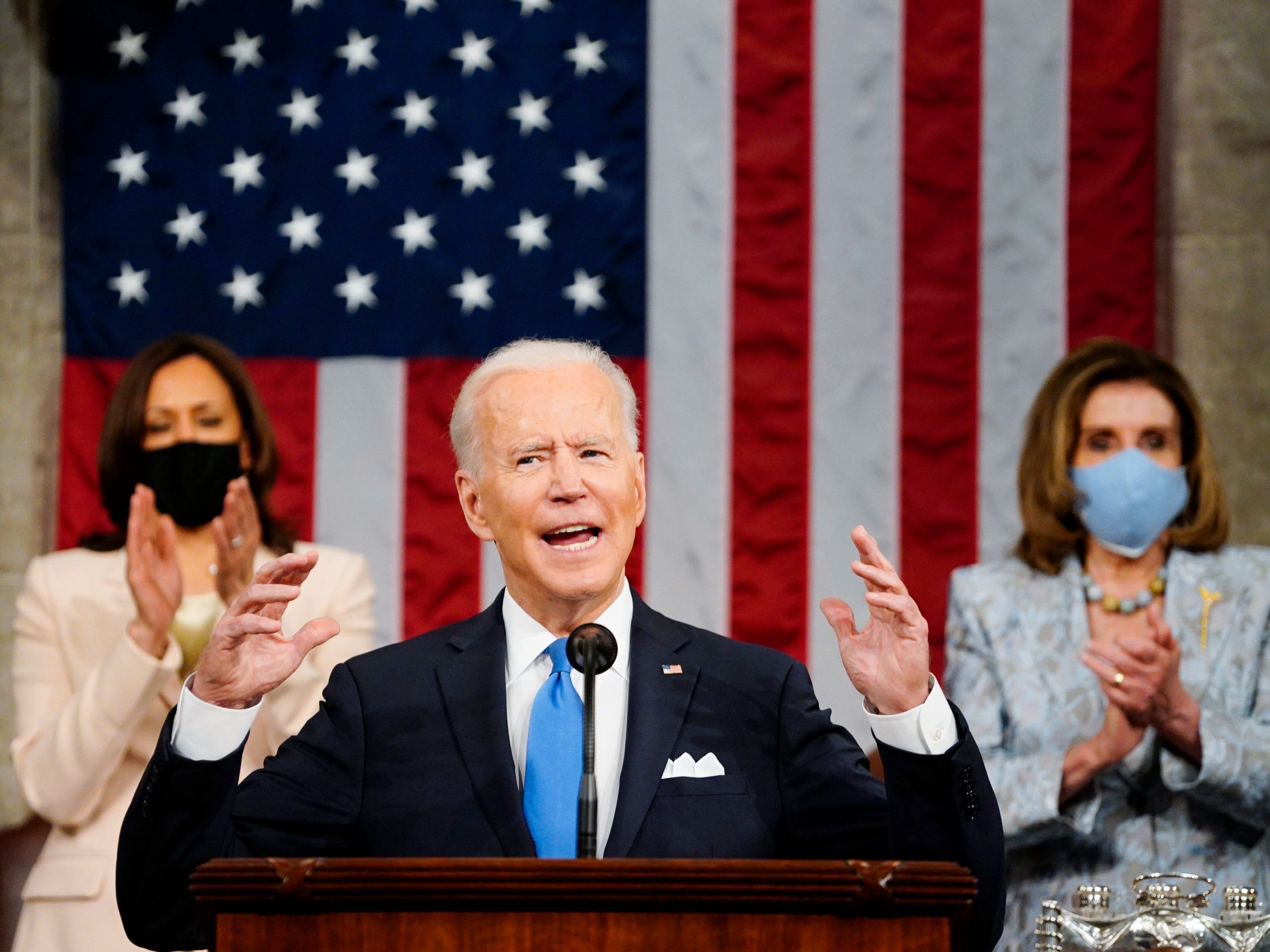
Melina Mara/The Washington Post via AP, Pool
- Penn Wharton Budget Model predicted Biden's infrastructure plan will cost $2.5 trillion over 10 years.
- It also said the plan will raise $1.3 trillion in tax revenue and increase government debt by 5% in 2050.
- GOP lawmakers introduced a $568 billion counter-proposal, which Democrats called "a slap in the face."
- See more stories on Insider's business page.
President Joe Biden unveiled his $1.8 trillion American Families Plan last week, which focuses on funding for childcare, education, and healthcare.
Penn Wharton Budget Model (PWBM) predicted that his plan will actually cost $2.5 trillion over ten years while raising $1.3 trillion in tax revenue.
In a report released on Wednesday, PWBM found that Biden's plan will cost $700 billion more than White House estimates due to tax credits within the plan, such as extending the child tax credit by four years, along with establishing permanent programs including universal pre-K and free community college, which PWBM assumed additional spending for, beyond the budget window.
With regard to tax revenue, the report found that $1.3 trillion in tax revenue would be raised in the 10-year budget window, which includes the almost $480 billion in additional revenue from enhanced Internal Revenue Service tax collection enforcement.
Here are other main findings from the report:
- By 2050, taxes and spending combined in the plan will increase government debt by almost 5% and decrease gross domestic product by 0.4% as effects from the debt outweigh productivity gains;
- With spending alone, investments on childcare, education, and paid leave increase government debt by 11.6% in 2050;
- And the revenue raised from increasing taxes on high-income households would reduce government debt by 7% in 2050.
To pay for the plan, Biden suggested increasing taxes on high-income households and corporations - something Republican lawmakers have strongly opposed. On April 22, Senate Republicans rolled out a $568 billion infrastructure package funded by "user fees," which place fees on people using the services, rather than corporate tax hikes.
Democrats called the GOP plan a "slap in the face" and "a joke," citing the significantly smaller scope of the Republican plan.
"Could we just kind of tone the rhetoric down here and really try to get something done?" Sen. Shelley Moore Capito of West Virginia, who led the GOP plan, told Politico on Wednesday. "I understand disagreement, but I read that we're trying to stall it out and not make it happen. Or being too cheap? We're talking about a very robust package here."